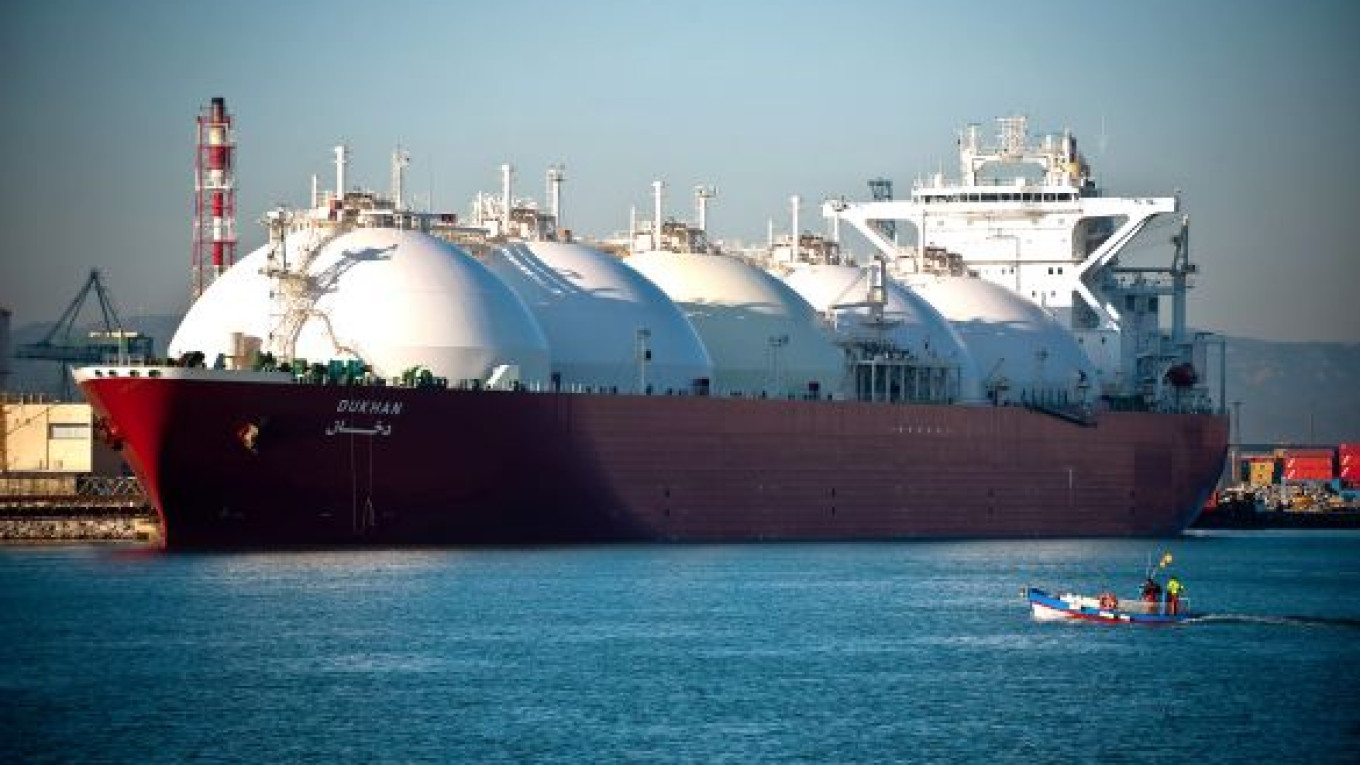LONDON/NEW YORK — The United States may play a role this winter in loosening Russia's grip on the European market for natural gas by shipping liquefied natural gas across the Atlantic.
Awash with domestic shale gas and with little need to import extra fuel, the United States has started re-exporting LNG cargoes, which firms had previously imported under contract, to countries where gas prices are much higher. Such shipments could contribute to a growing pool of cheaper LNG going to Russia's biggest export market this winter.
In the longer term, U.S. plans to build plants to liquefy shale gas could create another rival to Russian pipelines. The first re-export cargo from the United States to Britain — a key access point for LNG into northern Europe via an Interconnector pipeline to Belgium — is set to sail over the weekend. "It is a landmark shipment," said Zach Allen at NATS LNG analysts in Raleigh, North Carolina. "LNG has, through the Interconnector, played a major role in reducing intake of Russian gas into Western Europe."
U.S. shale gas has already forced many LNG producers that had hoped to supply the North American market to find alternative buyers, with many cargoes ending up in Europe and driving spot gas prices below the price of oil-indexed Russian gas.
Re-exports from the United States to Europe are the latest sign that increases in shale gas production have transformed the global gas market. The International Energy Agency said Tuesday that a decade-long period of oversupply was likely to push oil-indexed gas sellers to accept lower prices.
In February, Gazprom postponed its Shtokman LNG project because the United States, its target market, did not need more imports. Major European pipeline gas supplier Statoil has been forced to find alternative markets for LNG that it had hoped to send to the United States, often selling it into Europe. Qatar, the world's largest producer and exporter of LNG, has also pushed into both Norwegian and Russian markets by making large deliveries of cheap LNG into Britain and Belgium.
U.S. LNG imports have fallen to contractual minimums as gas prices have sagged, forcing importers whose terminals are sitting idle to change strategy and re-export to make the most of higher prices overseas. U.S. gas at $4.10 per million British thermal units (mmbtu) was about $3.30/mmbtu below British prices on Tuesday and just under half the price of Russian gas in Europe in October, according to International Monetary Fund data.
About 20 billion cubic feet (560 million cubic meters) of gas has already been re-exported from the United States this year, with some sent to Asia, where buyers have paid nearly $10 per mmbtu, and some to Latin America and the Middle East.
More of those U.S. loaded cargoes could head to Britain over coming months, given that winter price increases are sharper in northern Europe than in the United States and that imports by South American and Middle Eastern buyers are usually confined to the summer.
"U.S. exports to Europe will remain rather exotic, but they underline once again the big risks for Russia of focusing some of its future projects on U.S. markets," said Valery Nesterov, an energy analyst at the Troika Dialog brokerage. "The first U.S. LNG cargo for Europe is of course a symbolic event, but I would not overestimate it."
The number of cargoes redirected from the United States to Europe this winter will be limited because most shipments will probably head directly from producing countries, but the ongoing shale gas boom could lead to the export of American gas by tanker.
Cheniere Energy, operator of the Sabine Pass import terminal in Louisiana, announced plans in June to build a liquefaction plant at the terminal. It said Tuesday that Morgan Stanley hoped to secure some of its export capacity. Pending approval, the plant would export U.S.-produced shale gas to markets all over the globe from 2015. It would be the first U.S. LNG export plant in 40 years — following the old Kenai facility that supplies Asia from Alaska — and would be well placed to supply Europe.
"LNG supplies from the United States can help lower gas prices in Europe and Asia and ultimately help lift prices in the States," said Mikhail Korchemkin from Pennsylvania-based East European Gas Analysis.
A Message from The Moscow Times:
Dear readers,
We are facing unprecedented challenges. Russia's Prosecutor General's Office has designated The Moscow Times as an "undesirable" organization, criminalizing our work and putting our staff at risk of prosecution. This follows our earlier unjust labeling as a "foreign agent."
These actions are direct attempts to silence independent journalism in Russia. The authorities claim our work "discredits the decisions of the Russian leadership." We see things differently: we strive to provide accurate, unbiased reporting on Russia.
We, the journalists of The Moscow Times, refuse to be silenced. But to continue our work, we need your help.
Your support, no matter how small, makes a world of difference. If you can, please support us monthly starting from just $2. It's quick to set up, and every contribution makes a significant impact.
By supporting The Moscow Times, you're defending open, independent journalism in the face of repression. Thank you for standing with us.
Remind me later.


